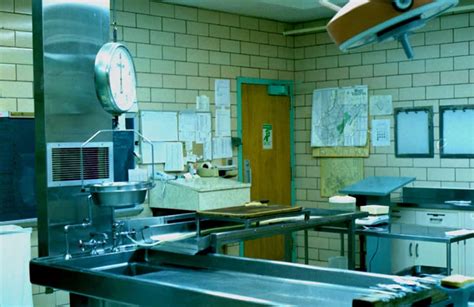Becoming A Morgue Attendant: Skills, Steps

Working as a morgue attendant requires a unique set of skills and a strong stomach. It is a profession that requires compassion, attention to detail, and the ability to handle difficult situations with sensitivity. In this article, we will discuss the necessary skills and steps to become a morgue attendant.
Skills Required to Become a Morgue Attendant
To excel in this profession, there are several key skills that one must possess:
- Attention to Detail: A morgue attendant must have excellent attention to detail to ensure the accurate identification and handling of bodies.
- Compassion: Dealing with deceased individuals and grieving families requires a high level of compassion and empathy.
- Physical Stamina: The job can be physically demanding, requiring the ability to lift and move bodies.
- Organizational Skills: Keeping track of paperwork, documentation, and maintaining a clean and orderly work environment is crucial.
- Strong Stomach: Working with deceased bodies can be emotionally challenging and requires a strong stomach.
- Communication Skills: Clear and effective communication with colleagues, medical professionals, and grieving families is essential.
- Discretion: Maintaining confidentiality and respecting the privacy of the deceased and their families is critical.
- Technical Skills: Familiarity with medical equipment, computer software, and other technical aspects of the job is necessary.
Steps to Become a Morgue Attendant
If you are interested in pursuing a career as a morgue attendant, the following steps will guide you in the right direction:
1. Obtain the Necessary Education and Training
While there is no specific degree required to become a morgue attendant, a background in mortuary science, forensic science, or a related field can be beneficial. Consider earning a certificate or degree from an accredited institution.
2. Gain Experience in a Related Field
Before working directly in a morgue, it can be helpful to gain experience in a related field such as funeral services, pathology, or healthcare. This will provide you with valuable knowledge and skills that are applicable to the role of a morgue attendant.
3. Develop Strong Communication and Interpersonal Skills
Working as a morgue attendant involves interacting with grieving families, medical professionals, and colleagues on a regular basis. Developing strong communication and interpersonal skills will help you navigate these interactions with empathy and professionalism.
4. Apply for Job Openings and Gain On-the-Job Experience
Once you have the necessary education and experience, start applying for job openings at morgues or medical examiner’s offices. Gain on-the-job experience to further develop your skills and gain a deeper understanding of the role.
Conclusion
Becoming a morgue attendant requires specific skills, training, and experience. It is a challenging but rewarding profession for those who possess the necessary qualifications. By following the steps outlined in this article, you can embark on a career in this unique field.
Frequently Asked Questions
Q: What is the role of a morgue attendant?
A: A morgue attendant is responsible for the proper handling and storage of deceased individuals, as well as assisting with autopsies and maintaining the cleanliness of the morgue.
Q: How long does it take to become a morgue attendant?
A: The time it takes to become a morgue attendant can vary depending on the individual’s educational background and experience. It can take anywhere from a few months to several years.
Q: What are the work hours like for a morgue attendant?
A: Work hours for morgue attendants can vary, as the job may require evening, weekend, and holiday shifts. Additionally, morgue attendants may be on call for emergencies.
Q: Are there any certifications or licenses required to become a morgue attendant?
A: Certification or licensing requirements for morgue attendants can vary by state and employer. It is recommended to research the specific requirements in your area.
